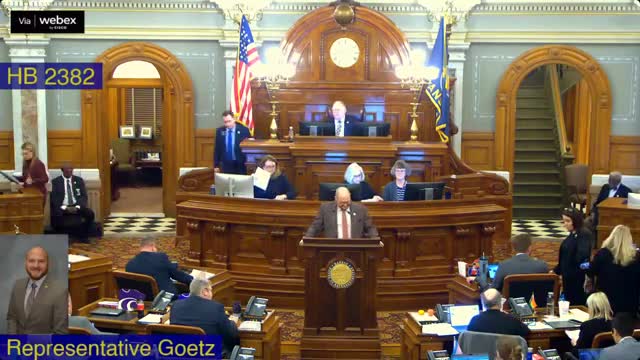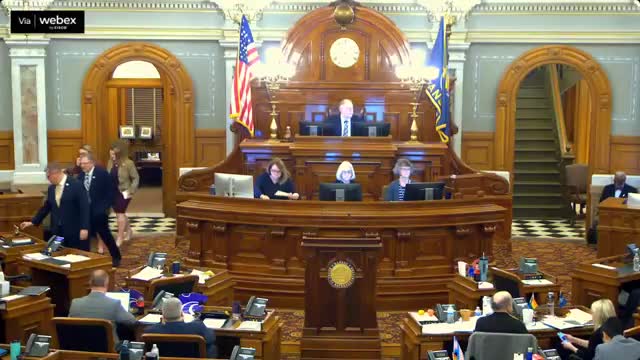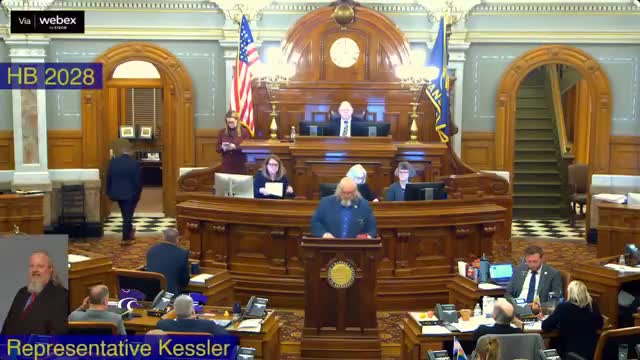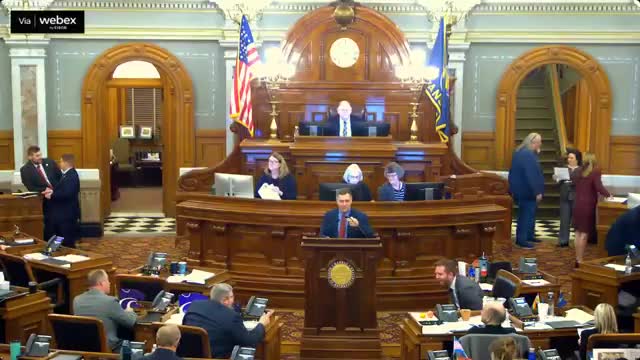Article not found
This article is no longer available. But don't worry—we've gathered other articles that discuss the same topic.

Kansas House adopts conference report requiring three‑minute fetal development video and gives State Board authority over pay

Kansas House adopts conference committee report to allow SNF waivers for rural emergency hospitals and creates South Central Regional Mental Health Hospital

Kansas House approves conference report limiting some nonresident waterfowl hunting days, restores lifetime licenses for seniors and youth

